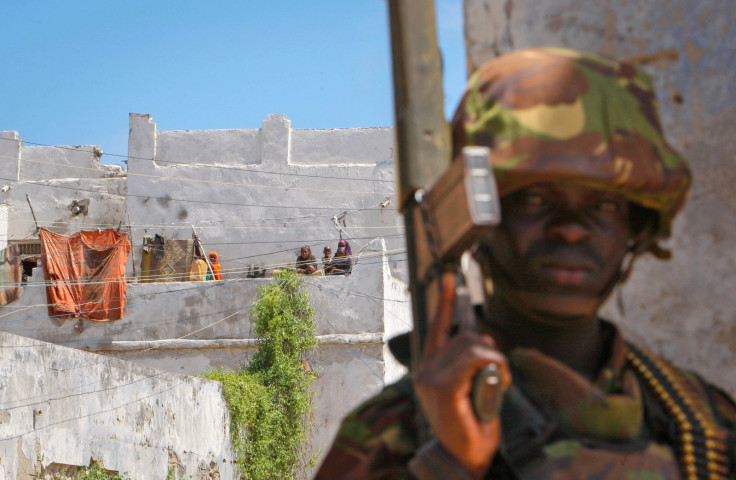UN report finds Kenya still funding al-Shabaab terror group through illegal sugar and charcoal trade
Kenya contingent of AMISOM mission alleged to be making millions from trade with al-Shabaab.

Three years after the Kenyan army was first accused of colluding with Somalia-based Islamic group al-Shabaab in Somalia's multimillion-dollar illegal charcoal trade, the United Nations has warned that Kenya's military are still complicit in the trade, from which al-Shabaab predominantly finances its activities.
In 2013, the United Nations found that members of the Kenya Defence Forces (KDF) operating in Somalia as part of the African Union Mission in Somalia (AMISOM) was complicit in the trade that provides income to al-Shabaab. The terror group – KDF's military opponent in Somalia and at home – has long funded its war against the Somali government and AMISOM by the illegal export of charcoal estimated at between $135m (£109m) to $180m by the UN monitoring group for Somalia and Eritrea.
A UN report by the experts group, and made public on 31 October, alleged that the Kenyan army was still acting as a broker in the vast illegal charcoal trade in agreement with al-Shabaab, thus enabling the terror group's financing.
The UN committee claimed the source of income comes from informal taxation at roadblocks and ports.
Experts estimate that between 4.5 million and 6 million bags, each containing 25kg of coal, are exported each year aboard hundreds of dhows from Bur Gabo and Kismayo, seaports just 200km from the Kenyan border to the United Arab Emirates (UAE). These imports are in violation of a 2012 total ban on charcoal exports imposed by the Security Council.
Claims: Kenyan army makes several million dollars
In their latest report containing supporting photographs, the UN experts evidence the presence of a KDF military base next to a pile of illegal coal in Bur Gabo. "The Kenyan troops receive $2 for a bag of coal at the port of Kismayo," the report read. It is estimated the KDF contingent working under the banner of AMISOM is making several million dollars per year.
US government-funded organisation Institute of Defence Analyses (IDA) was the second institution to accuse KDF of complicity in the illicit charcoal trade in Somalia after it published a report in 2014.
"Since the charcoal trade is al-Shabaab's primary income, it is not an exaggeration to posit that a portion of the resources used to carry out terror attacks in Nairobi and in Mombasa and other locations along the Kenyan coast is being generated with the acquiescence or even the cooperation of the KDF and Kenyan business interests," IDA's report read.
Kenya's military chiefs have previously denied allegations of involvement in any illicit activity in Somalia and have maintained that since October 2011, they have only engaged in military action aimed at stabilising the war-torn country.

Indulging in 'profitable' sugar smuggling
The experts, however, found that the UAE has strengthened the implementation of the Security Council embargo on charcoal – meaning coal exporters have become more reluctant to load the dhows in Somalia's ports since May 2016.
Faced with a drop in profits due to the recent decline in the charcoal trade, al-Shabaab is diversifying its funding sources and the illicit sugar trade is gaining relevance.
"Al-Shabaab is increasingly resorting to levying taxes on the illicit trades of sugar, agricultural production and livestock," the experts noted in the report. It is estimated the terror group makes up to $17.6m a year from the illegal sugar trade, and up to $9.3m on agricultural products.
The role of the KDF in these other illegal trades first surfaced in 2015, when NGO Journalists for Justice (JFJ) published a report in which it alleged that the Kenyan army was also levying taxes on traders involved in sugar smuggling at Kismayo port, which it controls. At the time, the group estimated the army was demanding a tax of $2 per bag on imported sugar, generating an income of around $250,000 a week, or $13m a year.
"Everything goes into the pockets of the commanders of the Kenyan army in Somalia. Sugar is illegally imported from Brazil, passes through the UAE and Saudi Arabia, before arriving in Somalia and crosses the Kenyan border, where it is sold at low prices [because it is not taxed]. It is very profitable," Kwamchetsi Makokha, JFJ programme adviser, said.
On 6 November, the Kenyan government spokesman Alfred Mutua slammed the report as "rubbish" and said the "farce"'s "only agenda is to demoralise the Kenyan troops".
According to JFJ, Kenya's allies in the fight against al-Shabaab – in particular the UN, United States and United Kingdom – are "very frustrated" with the fact that the KDF network is facilitating al-Shabaab's profiteering from illegal charcoal and sugar smuggling in contravention of United Nations sanctions and Kenyan law.
AMISOM was created by the African Union in January 2007 as a regional peacekeeping mission with the approval of the United Nations.
© Copyright IBTimes 2025. All rights reserved.






















